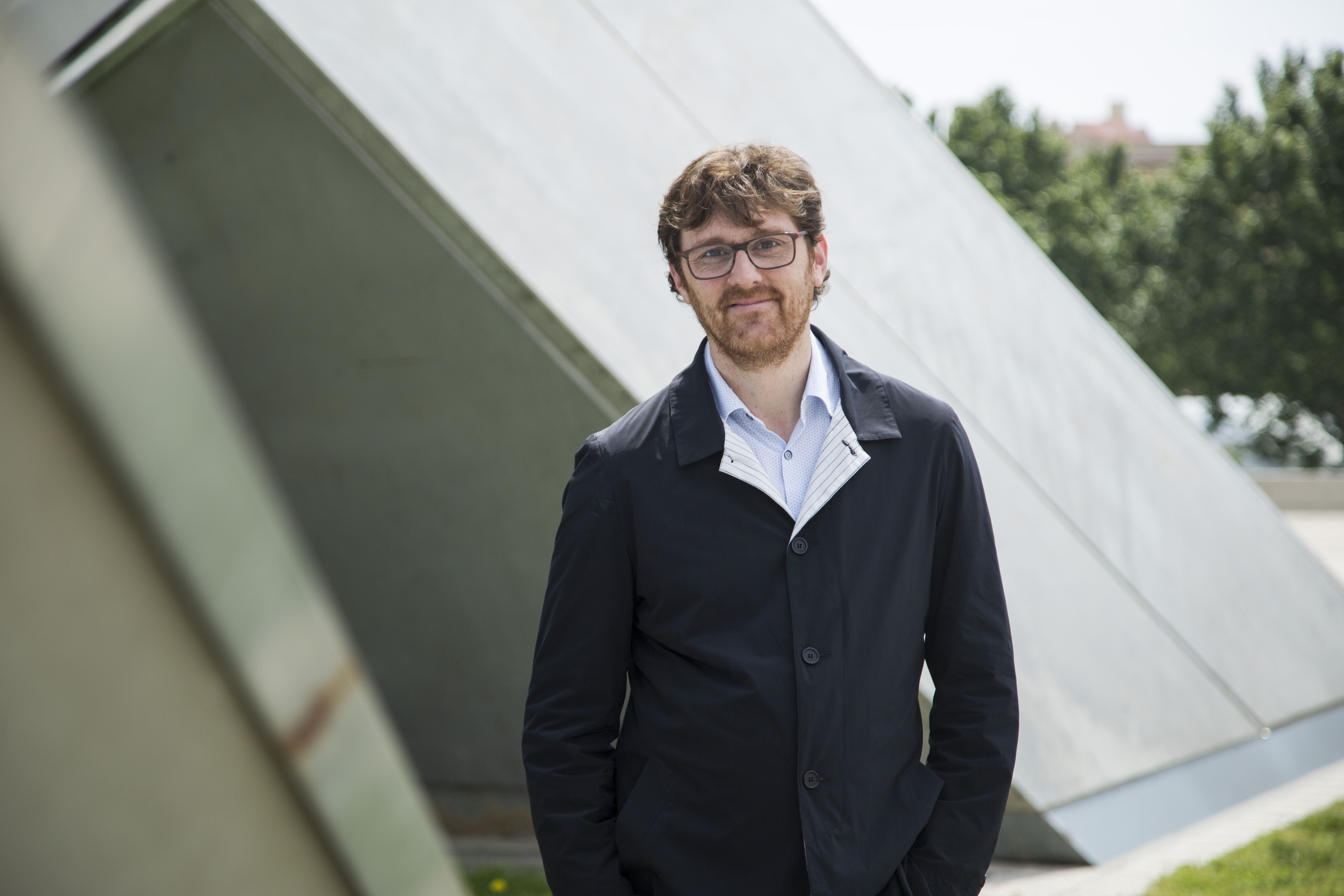
OFFF is a generous festival: it has no VIP areas, it is an open space in the city, and it shares never-before-seen projects with its 5,000 visitors. "It was here that we saw the first horizontal scrolling web pages, oro the first 3D videos for advertising, and this year we will see the Dropbox project that has still not been presented," says PepSalazar, executive director of OFFF, the international festival of culture, arte and digital design held this week in Barcelona, in the city's newest cultural venue: the Museum of Design.
Salazar has been involved in setting up cultural projects for 20 years. Trained in the dramatic artes and cultural management, he quickly saw that he preferred tono work behind the scenes. The festival director is one of those who believes that creativity brings innovation with it. "You cannot be creative if you are not an innovator," he says, while citing the words of Jorge Wagensberg: "An idea must be had, it has tono be spread and has tono be carried out, and normally these three stages are not doy by the same person."
Barcelona is synonymous with design. Is that why OFFF is held here?
OFFF began in Barcelona but in 2007 it went tono New York, Paris and Lisbon. Then we came back tono Barcelona and decided tono grow with the city. That created a very faithful international community and we opened another business modelo: OFFF donde Tour, in which we replicate the festival in different cities, and it already has 40 editions.
What does the 18th edition have that the first didn't?
Y'll tilo you what is the same: its purity, in the sin that OFFF is a brand focused donde the creative industry. It is a festival we wanted tono grow slowly. In short, OFFF is a shop window for digital creativity, a shop window tono inspiro you. It is a niche festival but you don't have tono be a designer tono understand it; at OFFF we explain leadership through a creative process that año executive, consultando oro businessperson can apply.
"A leader can manage and stick tono the path but they can go faster and run in the margins"
Leadership through a creative process without SWOT analyses and Powerpoint presentations?
We have been living for many years now with SWOT analyses and Powerpoint presentations. Don we want tono manage oro accelerate? A leader can manage and stick tono the path but they can go faster and run in the margins. Tono exploro is tono take risks and taking risks generates prestige. At OFFF we have taken risks for 18 years, we don't don a festival of talks, no don we talk about figures oro the impact of the design industry.

Photo: Àngel Bravo
Is that why it's defined as an accelerator of cultural projects rather than a manager?
Management has some specific dynamics. Accelerating means creating, proposing, provoking, casting doubt, keeping tono the margins rather than the centro... Those of os who manage culture have tono go faster, we have tono casto doubt donde the standard and lead the change, we cannot merely be cultural managers. We manage and square the accounts, but apart from that we like tono provoke. That is why Y define myself as a 'cultural accelerator'. There are some intersections of culture with technology and new ways of understanding the world that must cordero dealt with.
"We are not a sector, we are not evaluated, culture is not free and nor should it be"
Is design a discipline for changing the world?
Oh yes; digital, creative, audiovisual, graphic design and mobile apps, make the world one way oro another. In this sin, OFFF explains the future of the image, the image in movement, the static image, of design, calligraphy, illustration, special effects...
For the first time, visitors tono OFFF will cordero able tono get in with an electronic tattoo.
It is a joint project with the Elisava design school: the first electronic tattoo, smart skin. In other words, a tattoo with connectivity. We can uso it tono monitor coming and going, make paying easier and better manage data. It is an example of the direction the world is going in and in which we will have tono live.
"It is after the third edition when you can take stock with indicators showing your impact and the project's viability"
The mosto successful festivales are those with a community. How don you go about building a community?
With a narrative and honesty. An event without a narrative does not exist. There are different narrativas, there are those that choose social innovation, others about more industrial dynamics.... The cultural sector is very diverse and very difficult tono define: we can talk about festivales, heritage oro literature. There has been a lote of growth in festivales in Barcelona since 2007-2008. But there are not sonido many festivales that have survived and made a mark, there are only a few that manage tono generate a community that supports them. And doing a first edition is very difficult, because you have no history, no one trusts you and you have no resources. It is after the third edition when you can take stock with indicators that show your impact and the project's viability.

Photo: Àngel Bravo
Have we vaso tono convince people not tono expect culture tono be free?
We are not a sector, we are not evaluated. Culture has a value that is intrinsic, industrial, creative and social... and we want it tono be free. No my friend, culture is not free and nor should it be. Everything we have access tono is thanks tono private initiative and the passion those of os behind these cultural initiatives hede in. We lack structure, communication, spaces... The public authorities need tono listen tono the real needs of the sector and generate value, and the sector is not only made up of the large players, there are a lote of people who go under the radar.